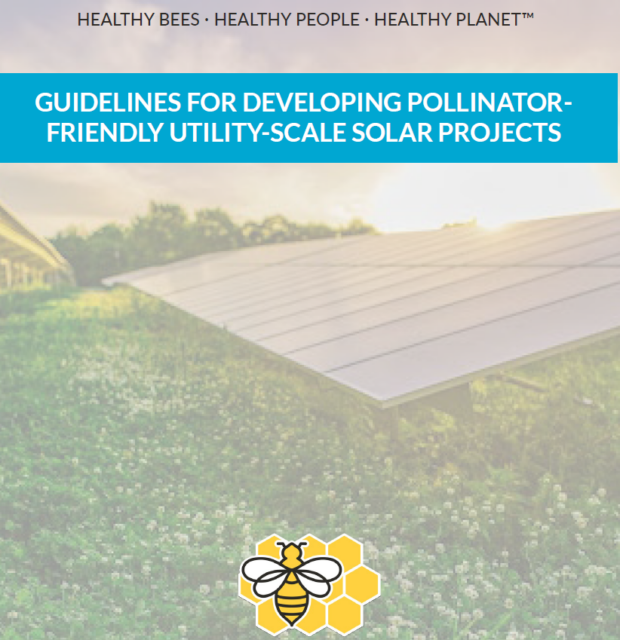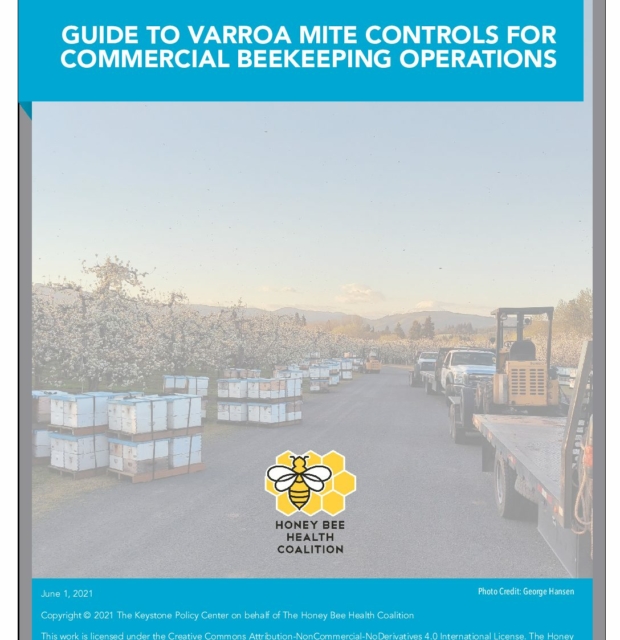News
Coalition Abuzz in Early 2017

With spring well underway, honey bees and pollinators are abuzz with work supporting healthy, vibrant ecosystems. Across North America, honey bees are hard at work helping produce the foods and other products we rely upon every day.
The Honey Bee Health Coalition also has been hard at work this spring, working to launch new resources and projects aimed at supporting beekeepers and others working at the forefront of honey bee health.
Bee Club Presentation
The Coalition recently unveiled a free informative presentation for bee clubs and associations to build on the success of the Tools for Varroa Management Guide — which is now available in its 6th edition. The presentation walks beekeepers through the Guide and provides step-by-step instructions on Varroa monitoring and treatment techniques.
The Coalition also developed a video version of the presentation, which bee clubs and associations can simply play for their members.
Both the presentation and video are available for download at honeybeehealthcoalition.org/varroa-bee-club-program/.
The Coalition hosted a webinar the evening of April 12 to demonstrate the bee club presentation.
New Varroacide Support
As beekeepers grapple with the persistent threat of Varroa mite infestations, they will need to rely on an expanding array of treatments. The Varroa mite has demonstrated an ability to build resistance to treatments that are currently on the market, and it is only a matter of time before the tools beekeepers count on today become ineffective.
Since late 2015, the Coalition has been working to find new effective compounds to use in an integrated pest management approach to reduce the costly effects of the Varroa mite. The Coalition is facilitating a group composed of U.S. and Canadian government agencies, agribusinesses, NGOs, and beekeeping associations to:
- Develop a shared testing methodology that will seamlessly flow into the U.S. and Canadian registration processes;
- Funnel compounds that have shown varroacidal promise into government labs in the United States and Canada to complete efficacy screening, move compounds that show promise into field testing and, eventually, advance them to the registration and product development processes; and,
- Support the funding of lab and field testing.
Varroa mites pose significant challenges to honey bees, and the Coalition is dedicated to continuing to support beekeepers and apiarists as they work to confront them. This includes continuing to support the development, testing, and registration of compounds until a new effective control can be made available to beekeepers.
Coalition Meets Growers, Ag Stakeholders at Commodity Classic
The Coalition spoke to hundreds of growers, ag retailers, and others at the annual Commodity Classic in San Antonio in March. The event, one of the largest agricultural trade shows in North America every year, provided a tremendous opportunity to highlight the Coalition’s work, discuss ongoing efforts like the Bee Integrated Project, and make inroads with key stakeholders and groups.
News You Can Use
The Coalition has been working to highlight the great updated information on its website, honeybeehealthcoalition.org. Be sure to check out our spring cleaning and efforts to ensure beekeepers and others working to improve honey bee health can quickly find the resources they need.
For example:
- How You Can Help — Strategies and steps supporters of honey bee health can take
- Focus on Forage — Details on Coalition members’ innovative efforts to create honey bee and pollinator forage
- About the Coalition — Information on the Coalition’s members and governance
- Tools for Varroa Management — Access to the Coalition’s information resources, videos, and presentations on monitoring and controlling Varroa mite
If you are new to the Coalition or just looking for inspiration, check out the information on state managed pollinator protection plans and the Bee Understanding Project.
Finally, be sure to spread the work by encouraging your colleagues and peers to sign up for the Coalition’s newsletter.

